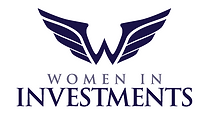
This year represents an intersection of uncertainty and possibility. It is easy to look inward during a time of crisis and lose sight of the bigger picture. With an increasing focus on ESG, UNSDG and responsible investing, it is important to be reminded of the role of capital in creating positive change that will last generations and beyond the current crisis.
Through the generosity of Thakshi Wijesundara, Women in Investments was connected to Niranjali Amerasinghe and Michelle Higelin of ActionAid. ActionAid advances women's rights to end poverty and injustice. They do this by working directly with women to claim their rights and campaigning to ensure responsible corporate practice and better public policy, particularly on issues such as trade and climate change.
During our conversation, Niranjali and Michelle discussed the power of women in creating sustainable change as well as the role of responsible investing. Our conversation topics have been summarised below:
Why women is a focus for ActionAid
Poverty and gender go hand in hand and is a driver of gender inequality.
In a time of crisis, violence against women increases, unpaid work increases, which creates a vicious cycle of women being left out of decision making and further sets them back from influence.
Investment in the building of women's resilience and also women’s leadership at a moment of societal upheaval does lead to long term change.
To learn more about their work with women, click here for the Arise program.
How the pandemic set things back
Highlights the societal structures that have failed people.
We are at an inflection point – whether it sets us back or pushes us forward to shape the world in a better way is yet to be seen.
UNSDG and stewardship
The UNSD framework is extremely useful to see the priorities and intersections in eliminating global poverty. The sucess of the framework will depend strongly on how closely Governments chose to follow the framework.
The key to a successful implementation requires a model of stewardship to care for the planet and all people, including marginalized people.
We need to shift private finance to lower emission portfolios for the betterment of the world but we cannot ignore the importance of public finance as there can be an over reliance on the private sector to provide capital, even into areas where there are no markets yet.
Responsible investing is only just the beginning
The primary fiduciary duty of investing is to shareholders to provide economic return. Whilst strides in ESG have been made, the priority remains economic return. This prioritization makes shifting financial flows to climate-friendly investments a challenge.
It is difficult to incorporate ESG at the core as many problems have structures behind them that are difficult for the existing financial system to solve.
There is still a need for civil society organisations that work for those who are most excluded...however Michelle and Niranjali would love to work themselves out of a job!
With the disruption caused by the pandemic, please pause and think about the ripple effects of helping the most marginalised women in the world to rebuild their communities, defend her rights and develop resilience to last a lifetime. To donate, please click here.

Commentaires